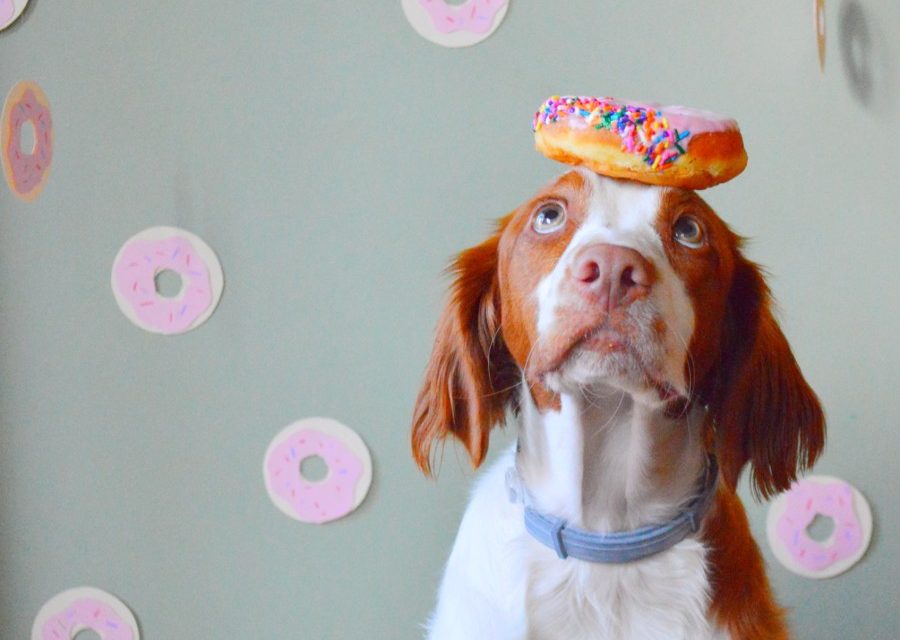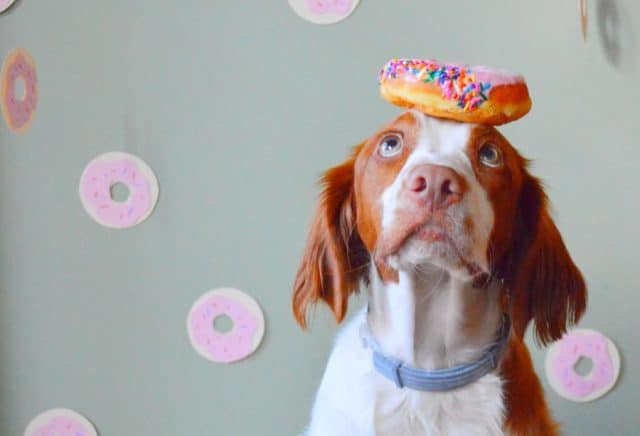

The Treat Less Dog
Dogs love food. They wormed their way into our campsites long ago because of it. Neolithic garbage dumps, remnants of a gutted deer, uneaten yak bones- these things drew wolves in, and at some point, an enterprising hominid figured out that regular feeding of these wild Canids could lead to a domestication of sorts, or at least a loose partnership. The Canids got regular food in exchange for guard duty. Puppies were taken from dens, and the long history between us began.
Many behaviors I train my dogs to do begins with some form of treat motivation. You sit, you get a treat. You come when called, you get a cookie. Spin around like a corkscrew, bit o’ chicken. Simple motivation that harkens back to the stone age.
But once a dog gets the behavior, I begin to ladder back on the frequency of treats, replacing them with praise, a toss of a ball, a scratch- almost anything the dog might like besides a treat. I use treats unpredictably from that point. This actually creates a heightened expectation in the dog: he or she doesn’t quite know if a treat is coming, and therefore becomes more responsive and excited than if I predictably gave a treat every time. It’s a fundamental rule of training: if you give a treat every time, the dog’s response time goes down. But be unpredictable with those cookies and you’ll ratchet up response time.
Unlike most other trainers, I take this one step further: I often get to the point where no treat is offered at all. How then, you ask, can I then maintain a high level of training in my dogs?
Simple. I tap into another canine instinct that is nearly as strong as food drive, one which, if developed, will not only ensure great response time, but also create a more loving, attentive attitude in a dog, while also reducing the fixation on food. Very simply, I get my dogs to perform because they like me.
A dog who performs for love or attention rather than for a treat has a completely different behavioral presentation than one taught to respond only to treats. The food fixated dog focuses on- you guessed it- FOOD. He rarely makes eye contact with his trainer, preferring instead to stare at a pocket or hand. She’ll often ignore any request from someone not holding a cookie, in favor for someone (even a stranger) holding a tidbit. It breeds a sense of cunning opportunism in dogs, and reduces any type of group loyalty. And, no matter what you have read to the contrary, dogs are instinctively all about the group, the tribe, the family. But, just as kids can become shallow and manipulative if parented only with bribery, so will dogs become manipulative, pushy, and selfish when treat-trained too much.
I have had dogs risk their lives for me, fight for me, search for hours for me in the woods, break through doors to catch bad guys, dig through snow drifts to find me. These were dogs who wanted to do things with me for my company, and not my pantry.
In 1990 my great dog Lou successfully defended me against two Venice Beach hobos determined to give me a beat down. He didn’t do it for a bit of beef jerky. Rather, he did it because the very thought of me getting hurt was too much for him to bear. Instead, the hobos got the beat down. A palpable sense of fellowship, separate from food bribery, existed in him: Lou could not imagine me harmed, and couldn’t picture life without interaction with me. I was his reward. Me. Pretty heady stuff.
Current training philosophies in my opinion have abandoned utilizing the dog’s inherent desire to be part of a group, and to covet its members. Instead, a mindset that treats dogs more like lab rats and less like loyal partners has taken over, and created treat-centric dogs who robotically work for the gut, and not the heart. Treats come out of every pocket, eventually leading to a somewhat anti-social, self-indulgent mindset. I see it in dogs all the time: many clients have dogs who, if given the chance, would run off with the first person holding a bag of cookies. These dogs have terrible or non-existent recalls, become incredibly pushy and demanding, and, as an aside, get pudgy from a doubling of needed calories. And, they often become food aggressive around other dogs. If I wanted a dog like this, I’d get a cat.
I have even begun initiating new behaviors in my dogs using only praise, toys, or games as rewards. No initiating treats! Not only does it work well, but it fosters a sense of cooperation and camaraderie right from the start. I might give a treat or two in a week’s time, but that’s it. Think about it: does a younger dog in a two-dog home love and appreciate the elder dog because it gives the youngster cookies? Or is it pure camaraderie, pure affection and solidarity? I think you know.
Try spending an entire week substituting praise, play, toy rewards, petting and quick massaging for a bag of treats. You’ll see that, in addition to performing for the attention, your dog will focus more on YOU, and not your largess. And he’ll be able to fit into that silly Batman costume you bought for him yesterday, for the doggy Halloween party coming up.
Join the newsletter and never miss out on dog content again!
"*" indicates required fields
By clicking the arrow, you agree to our web Terms of Use and Privacy & Cookie Policy. Easy unsubscribe links are provided in every email.